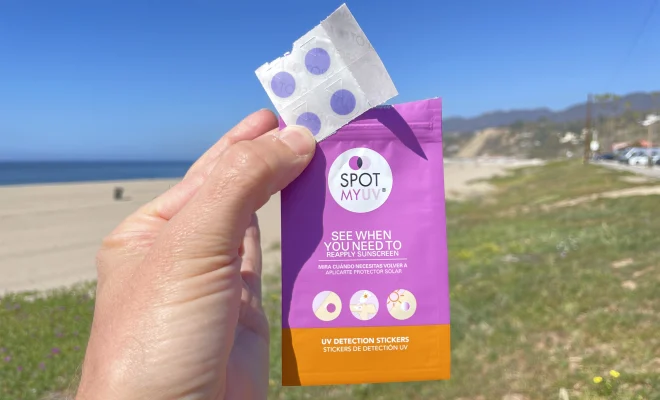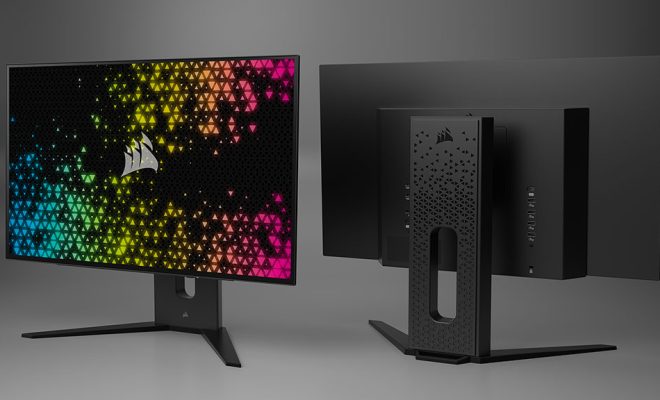UV Stickers: Timely Alerts for Sunscreen Reapplication

Sun protection is a crucial part of maintaining healthy skin, and finding ways to ensure we reapply sunscreen effectively is now becoming easier. One way to achieve this is through innovative UV stickers that alert users when it’s time to reapply their sunscreen.
Developed by a company called Suncayr, these UV-sensitive stickers are a result of scientific research on the impact of sun exposure on our skin. The purpose behind this invention is to help people avoid sunburns and the potentially damaging effects of prolonged sun exposure.
As featured on CNET’s health and personal care section, the Suncayr’s SPOTMYUV™ is designed to be worn on the skin while you’re enjoying outdoor activities. Not only do they notify you when the sunscreen’s effectiveness has diminished, but they also keep up with your movements and water exposure.
The sticker’s mechanism is based on chameleon-like qualities. The UV sticker is applied directly to your skin alongside your sunscreen application. Initially, the sticker turns transparent to match your skin color. Once the protective properties of your sunscreen begin to wear off or diminish due to sweating or swimming, the sticker’s color will change as an indication that it’s time for you to reapply the sunscreen.
Using these UV stickers helps take the guesswork out of when your sun protection may need a reapplication, ensuring better safety and convenience for those who enjoy outdoor activities. This innovation not only reminds individuals about their responsibility towards protecting their skin from harmful exposure but also helps promote a healthier lifestyle in general.
In conclusion, the Suncayr SPOTMYUV™ stickers introduced by CNET have proven a valuable aid in promoting effective skincare routines during sun exposure. By keeping tabs on when it’s time for fresh applications of sunscreen, these UV-sensitive stickers are helping prevent damage from harmful ultraviolet radiation and encouraging a more proactive approach towards skincare.


